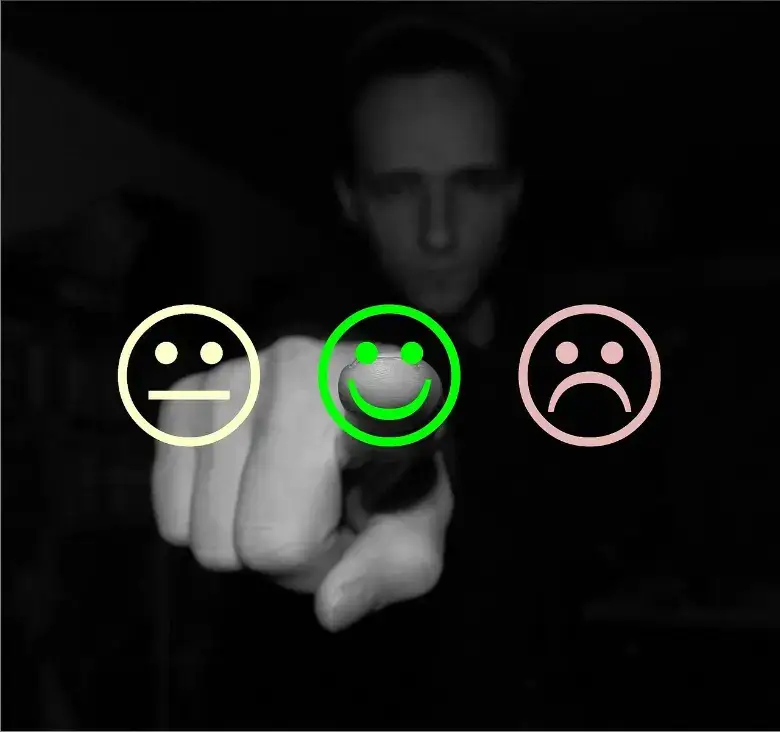Your loyal customers are your most important asset. They are the ones who continue to support your business, spread the word to others about you, and provide you with the valuable feedback you need to keep improving your small business.
Therefore, you want to do everything possible to make sure that you keep your loyal customer base happy.
While there are many things that you should be doing to retain your regular customers, there are also many things that you should avoid.
7 Things That Drive Away Loyal Customers
Skip to:
- Pricing and cost-related issues
- Poor customer service
- Changing product or service quality
- Communication and responsiveness issues
- Loyalty program pitfalls
- Overlooking individual preferences
- Lack of innovation

Source
Once again, the loyalty of your customers is paramount in your business. You can measure customer loyalty by conducting surveys and analyzing other aspects of your customers’ behavior.
We will now provide an overview of seven of the most annoying things that businesses do, which inevitably end up driving away customers, and offer suggestions on tools that you can use to minimize these problems.
1. Pricing and cost-related issues
Sudden price hikes, hidden fees, and inconsistent pricing policies frustrate customers because they expect transparency and consistency in their purchases.
People expect consistency when purchasing or receiving services. Customers frequent their favorite places because they know what to expect and trust they'll receive the same experience every time.
When a business unexpectedly changes prices, it can alienate loyal customers. Avoid these pricing practices:
- “Hidden fees.” Even if your business provides a service, and you want to add extra services at the end to improve the customer’s experience, you should be upfront about this from the beginning.
For example, if you’re a home remodeling contractor and learn that your initial quote will be more than you initially said, do not hide this from the customer and surprise them with the final bill. Be upfront, and let them know immediately.
A study by PwC found that 86% of buyers are willing to pay more for a better customer experience, highlighting how hidden fees and frequent price hikes can drive customers away. - Frequent price increases. As mentioned above, people are loyal to certain businesses more than others because they count on them to be consistent in their pricing, level of service, etc.
We all know that prices gradually increase due to inflation, changing parts costs, etc. Still, if this happens several times within a short period, people will become annoyed and start looking elsewhere for a regular place to go. - Lack of transparency. People expect their favorite businesses to be honest and transparent.
One study indicated that 94% of polled people would remain loyal to transparent brands.
Therefore, even if your products carry risks or have limited lifespans, it is better to clarify this upfront.

You can use tech tools to ensure your pricing rationalizations are transparent, fair, and accurate.
The right pricing software can help you better understand industry benchmarks, market trends, and other aspects of your industry’s accepted pricing mechanisms to make sound decisions regarding strategy.
2. Poor customer service
Poor customer service erodes loyalty, causing frustration when issues are not resolved quickly or empathetically, driving customers to look for better experiences elsewhere.
Relationship building is paramount in retaining loyal customers. If your customer service standards decline, your regulars will immediately feel it.
Even more so than new customers. You want to be ahead of the game and provide proactive customer service, rather than reactive, in dealing with regulars only after things have gone wrong. Things to avoid include the following:
- Long waits. People’s time is precious. If you find yourself getting increasingly backed up or lacking in available staff, you should address it quickly.
In many industries, people have multiple options for places to go, so they can soon turn elsewhere for faster service. - Unhelpful or rude staff. For many people, having a favorite business to frequent is similar to seeing friends.
They expect friendly, helpful service with every visit. If this suddenly starts to change and staff become rude or aloof, it won’t bode well for your business.
There are various types of customer support software available these days.
Thanks to constantly improving technology, more and more tasks are being automated, and businesses can handle customer requests with increasing ease.
Programs can address questions, create tickets, assign tasks, and create databases for improved business analysis.
For e-commerce businesses, data-driven delivery experience software can empower your customer service teams to proactively detect and resolve ecommerce delivery issues before they even escalate into complaints.
3. Changing product or service quality
Inconsistent product quality breaks trust, as loyal customers expect the same standards every time they buy, and when expectations are not met, they may seek more reliable alternatives.
People crave consistency in their lives, particularly from their favorite businesses. Given life's unpredictability, a reliable product or service becomes a comfort.
Therefore, it's crucial to uphold the quality of your offerings. Remember:
- Frequent malfunctions or defects. For example, you should ensure that the materials you use are of the highest possible quality if you provide home renovation services.
Keep up-to-date on the leading materials by regularly reviewing consumer reports rankings.
If people are becoming increasingly dissatisfied with your brands or components, you should research better options. - Inaccurate descriptions. Changing the quantity of one of your regular items but still advertising it will put off your regular customers.
If you provide two- or three-pane window installation and make claims about the degree of insulation these windows have, you should be confident that this will hold up in reality.
To keep up with trends in your industry, you can subscribe to consumer reports or a related site that is relevant to your business.
These sites will give you relevant information on products similar to yours and what standards companies are setting for them.
4. Communication and responsiveness issues
Just as in other types of relationships, regular communication is critical to staying on the same page as people.
Similarly, if you receive comments from your customers, you should respond promptly and appropriately. It is a critical element of customer retention.
Here are three things you should avoid:
- Ignoring complaints and feedback. If people have been your customers for some time, and they suddenly start complaining, you should take this as a red flag and act quickly to address whatever is wrong.
Infrequent customers might complain for different reasons, but if problems arise with your regulars, you know something is awry.
Try to look through your web, email, social media, and other feedback to ensure you’re up-to-date on customer feedback. - Lack of timely updates. Tell them about it immediately if you get new items in stock that will interest your customer base.
You don’t want to start running out of a great new product and have your regulars find out about it too late. - Difficulties in reaching customer support. If you run a small business and are open for limited hours, consider using a chatbot to answer frequently asked questions.
People don’t want to wait for answers.
There are different kinds of tools that you can use to manage these challenges better. For example, consider using a customized chatbot that you can program to address customer questions and complaints.
Chatbots are becoming increasingly sophisticated, and you can now program them to remember particular customers, answer complex questions, and perform other tasks that could previously only be done by humans.
5. Loyalty program pitfalls
Loyalty programs are standard among companies with regular customers. These programs involve anything from free products to services to typical discounts for participating customers.
They are an important component of lead generation, as well, because they incentivize people both to give you business and also spread the word about you to others.
You should plan and implement loyalty programs carefully because people can become disenchanted if you do not meet their expectations.
Frequent problems include:
- Unclear or misleading conditions. If you run a restaurant with a loyalty program stating that every sixth meal will be free, lay out all the conditions involved.
If your offer doesn’t apply during happy hour or on certain days of the week, you should be very clear about this from the beginning.
If people plan to visit you at a specific time and suddenly find their plans thwarted at the last minute, they will undoubtedly be happier.
If customers have more than one problem with a loyalty program, you might start losing their business altogether. - Irrelevant rewards. If you’re incentivizing something to your customers, clarify what it is.
People make a concerted effort to build loyalty points because they have a distinct picture of what they will receive.
If you run a clothing store and give people a one-size-fits-all t-shirt as a reward for building up points, many people will resent it if it does not fit.
It would be helpful to offer a description and a picture of what people will get as a reward for their loyalty credit. - Difficulties getting rewards. As mentioned above, people put effort into building up their loyalty points.
Once they reach the reward stage, they expect to receive their benefits without hassle. Don’t make the process too tenuous because many customers won’t consider it worthwhile.
Depending on the size of your business, there are different kinds of loyalty programs that you can run.
Some involve point systems, others include referral rewards, and others incorporate unique ideas. Explore the options and think about what would make sense for your business.

6. Overlooking individual preferences
Relationship-building with loyal customers should be a carefully crafted experience.
One of the reasons that people remain loyal to particular businesses is because employees get to know them, take the time to learn about their preferences, etc.
Companies that want to retain loyal customers should consciously remember people and what they look for. Therefore, you should be sure to avoid the following:
- Ignoring personalized experiences. When a regular customer walks into the store, take the time to greet them by name.
Try to recall a previous conversation, whether about purchases or something personal. If you treat regulars like strangers, you will become another store to them, and they may start taking their business elsewhere. - Lack of customization or personalization. Just as you should treat regulars with special care on an interpersonal level, so too should you personalize their shopping or service experiences.
Pay attention to the things that your loyal customers tend to want, and mention them upfront. If not, they will start to feel like they are repeating themselves unnecessarily and will become disenchanted with the experience of dealing with your business.
Getting the right Customer Relations Management system can be very useful in helping you keep track of your customer preferences. A reliable CRM system will store customer data, transactions, and queries.
7. Lack of innovation

Finally, you should keep on top of the trends in your industry. Even if you have a cadre of loyal customers, they will eventually become bored if you do not innovate to keep up with the times.
If you run a medical practice and fail to keep up with the trends in new equipment, your patients will surely turn elsewhere. Similarly, any product or service will constantly evolve standards and emerging trends.
Do your best to research the industry regularly and attend forums and events to help you grow and innovate.
The way and degree to which you innovate depends on your industry, the number of other players involved, and the speed with which your industry tends to change.
Subscribe to your industry's popular journals and magazines to stay current on the trends.
FAQ:
1. What are the most annoying things that drive away loyal customers?
Frequent price changes, poor customer service, lack of transparency, and failing to innovate are some of the most common issues.
2. How do hidden fees affect customer loyalty?
Hidden fees frustrate customers, leading them to feel deceived, which reduces loyalty over time.
3. Why is consistency important for retaining loyal customers?
Customers return to businesses that provide consistent quality, pricing, and service because it builds trust.
4. How can loyalty programs backfire?
Poorly implemented loyalty programs, such as unclear rewards or irrelevant incentives, often irritate rather than reward customers.
5. What impact does poor customer service have on regular customers?
Poor service erodes trust faster with loyal customers because they expect higher standards due to their long-term relationship with your business.
6. How can a business avoid driving away loyal customers?
By staying transparent, consistent, and responsive, businesses can avoid the most annoying things that push loyal customers away.
Conclusion
Your loyal customers are the actual substance of your business. Having devoted regulars shows your community that you are a reliable and worthwhile place to do business.
Therefore, you should do everything possible to retain these customers. Remember the above points and make a special effort to avoid them.
If you treat your regulars like they deserve to be part of your business, they will surely keep coming back.


